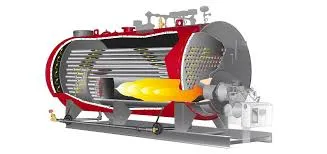
Dec . 05, 2024 16:46 Back to list
Factors Influencing the Efficiency of Hot Water Boilers in Residential Applications
Understanding Hot Water Boiler Efficiency A Comprehensive Guide
Hot water boilers are essential components in many residential, commercial, and industrial settings. They play a crucial role in providing heating and hot water, making them vital for comfort and functionality. However, the efficiency of these boilers can significantly influence operational costs and environmental impact. Understanding hot water boiler efficiency is key to making informed decisions about installation, maintenance, and operation.
What is Boiler Efficiency?
Boiler efficiency refers to the ratio of useful energy output to the energy input, typically expressed as a percentage. In simpler terms, it indicates how effectively a boiler converts fuel into heat. A highly efficient boiler uses less fuel to produce the same amount of hot water compared to a less efficient model. This efficiency is essential not only for reducing energy costs but also for minimizing greenhouse gas emissions.
Types of Boiler Efficiencies
There are several ways to measure boiler efficiency
1. Thermal Efficiency This is the most common measure and refers to the proportion of heat input that is converted into useful heat output. It does not take into account the heat lost through flue gases.
2. Combustion Efficiency This measures how well the boiler burns fuel and is determined by analyzing the flue gases to detect unburned fuel and excess air. High combustion efficiency means most of the fuel is being utilized effectively.
3. Overall Efficiency This metric combines thermal efficiency and combustion efficiency, providing a more comprehensive view of boiler performance by accounting for heat losses.
Factors Affecting Boiler Efficiency
Several factors can impact the efficiency of hot water boilers
1. Firing Rate The boiler’s firing rate should match the hot water demand. A boiler operating below its optimal firing rate will lead to inefficient performance.
2. Heat Exchanger Design The design of the heat exchanger affects how effectively heat is transferred from the combustion gases to the water. Advanced designs, such as those featuring condensing technology, can significantly enhance efficiency.
hot water boiler efficiency

3. Maintenance Practices Regular maintenance is crucial for maintaining boiler efficiency. Over time, boilers may accumulate soot and scale, which can hinder heat transfer and increase fuel consumption.
4. Insulation and piping Proper insulation of the boiler and hot water pipes minimizes heat loss, thereby improving overall efficiency.
5. Fuel Type The type of fuel used can also affect efficiency. Natural gas boilers generally have higher efficiencies compared to oil boilers due to better combustion characteristics.
Improving Boiler Efficiency
Boosting the efficiency of a hot water boiler can yield significant cost savings and environmental benefits. Here are some strategies to enhance efficiency
1. Upgrade to a High-Efficiency Boiler Newer boiler models often incorporate advanced technology that improves efficiency. Condensing boilers, for instance, can achieve efficiencies of over 90%.
2. Regular Maintenance Implementing a routine maintenance schedule that includes cleaning, inspections, and prompt repairs can keep the boiler operating at peak efficiency.
3. Install a Variable Speed Pump Using a variable speed pump can adjust the flow rate based on demand, reducing energy consumption.
4. Use Economizers These devices capture waste heat from flue gases and use it to preheat incoming water, effectively reclaiming energy that would otherwise be lost.
5. Proper Sizing Ensure that the boiler is appropriately sized for its application. An oversized boiler will cycle on and off more frequently, leading to efficiency losses.
Conclusion
Hot water boiler efficiency plays a critical role in maximizing energy usage, cost savings, and environmental sustainability. By understanding the different factors that affect efficiency and implementing strategies for improvement, users can ensure their systems are operating at optimal performance. Whether considering an upgrade or optimizing an existing system, prioritizing efficiency can lead to substantial benefits both economically and ecologically. Remember, an efficient boiler is not just good for your wallet—it’s also a step toward a more sustainable future.
-
High-Efficiency Commercial Oil Fired Steam Boiler for Industry
NewsJul.30,2025
-
High-Efficiency Biomass Fired Thermal Oil Boiler Solutions
NewsJul.30,2025
-
High Efficiency Gas Fired Thermal Oil Boiler for Industrial Heating
NewsJul.29,2025
-
High-Efficiency Gas Fired Hot Water Boiler for Sale – Reliable & Affordable
NewsJul.29,2025
-
High Efficiency Biomass Fired Hot Water Boiler for Industrial and Commercial Use
NewsJul.29,2025
-
High-Efficiency Biomass Fired Hot Water Boiler for Industrial Use
NewsJul.28,2025
Related PRODUCTS






















